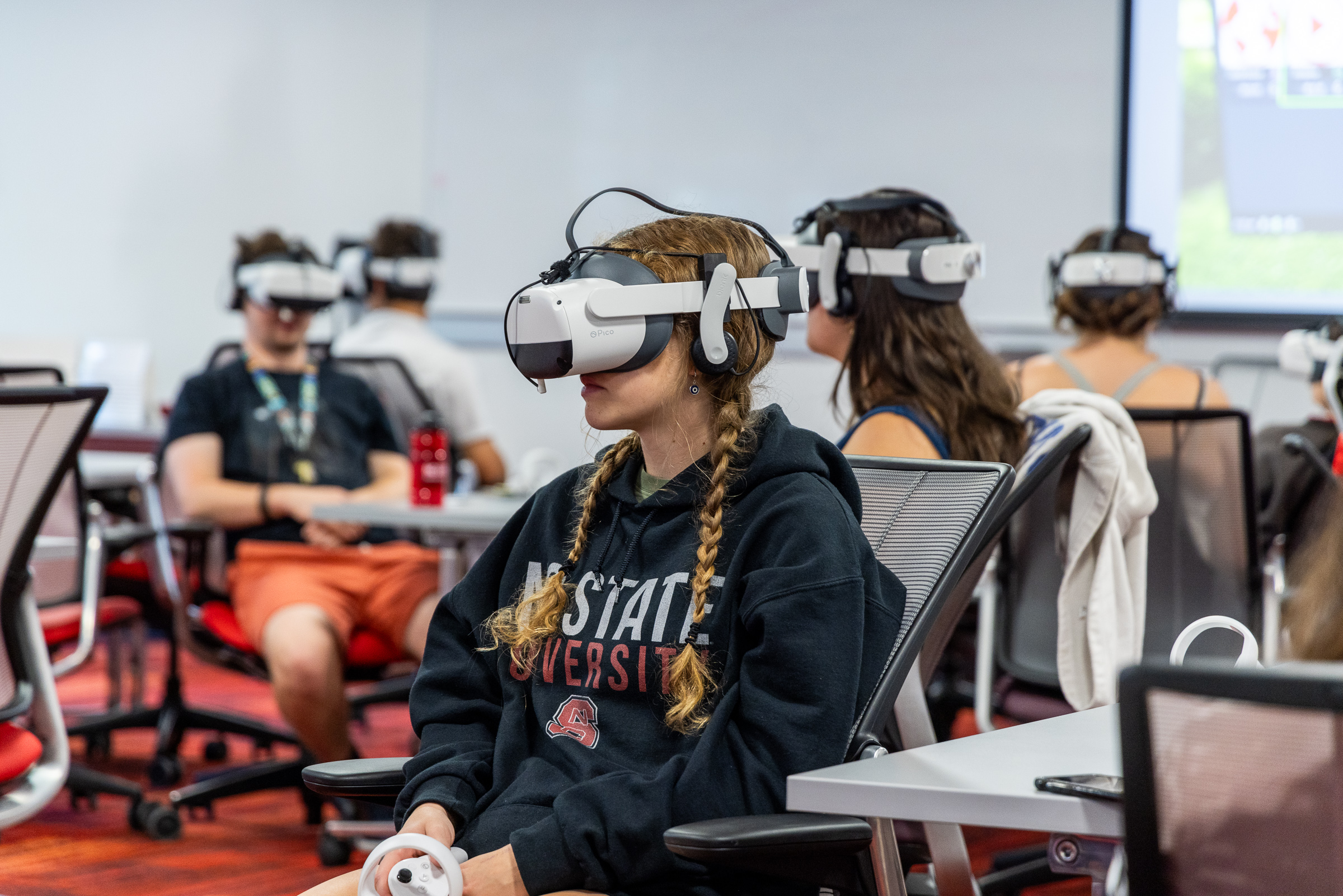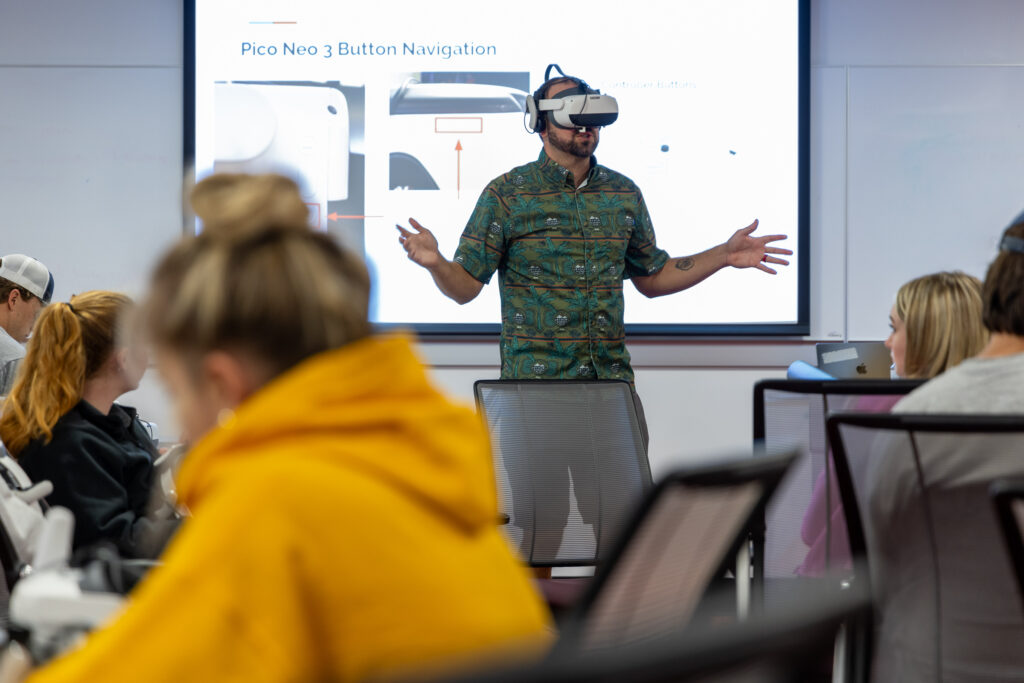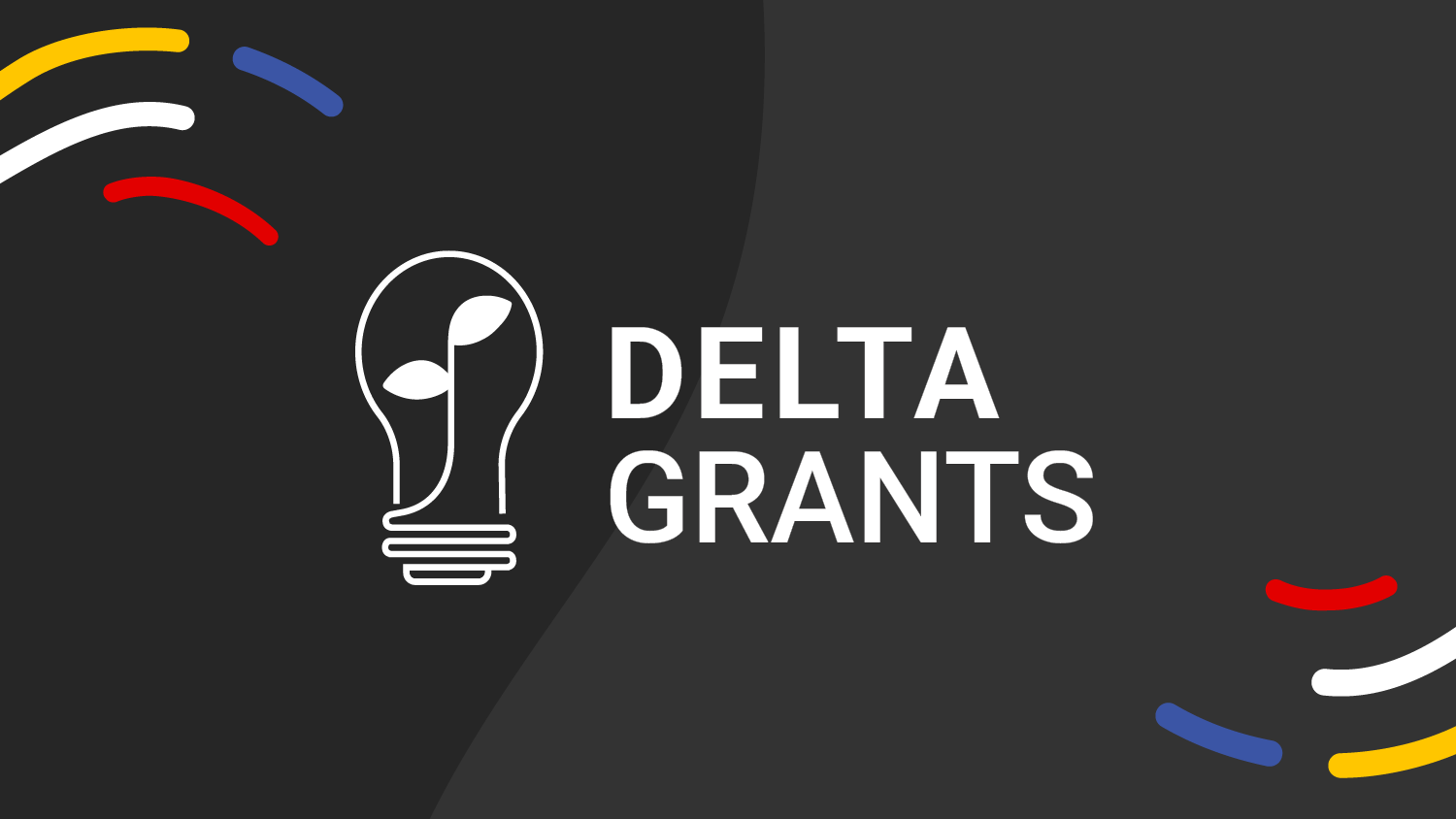Immersive VR Tours Promote Inclusive Recreation
DELTA Grant Enables Parks, Recreation and Tourism Management Students to Create Interactive Videos

The physical, mental and emotional health benefits of being in nature are well-documented and almost universally recognized – but not everyone’s experience of outdoor recreation is the same. Also, not all people have equal access to opportunities and time in nature, or feel safe and welcomed in public outdoor locations.
Enter Virtual Reality (VR) technology, which creates an immersive and interactive digital environment using 360-degree video, audio and other sensory inputs through the use of a headset and motion controllers.
Department of Parks, Recreation and Tourism Management Assistant Teaching Professor Nathan Williams, a longtime advocate of inclusive outdoor recreation, embraces VR in his courses. He sees VR as a way to help his students better understand their environments and the sociocultural factors impacting the experience of outdoor recreation for everyone.
VR allows users to enjoy the natural world or other digital environments from a safe, comfortable and navigable environment of their choosing. Also, for those with physical or cognitive disabilities or mobility impairment, VR provides opportunities to interact with nature without barriers to entry, such as cost, transportation or personal identity.
And the best part? Williams’ students not only consume VR experiences in the classroom, they create their own.
An Experiential Outdoor Classroom
With support from two consecutive DELTA Exploratory Grants, Williams partnered with a team of DELTA specialists to address a unique instructional challenge: teaching students how to be VR content creators while exploring questions of accessibility and inclusion in outdoor recreation.
Students in PRT 152: Introduction to Parks, Recreation, Tourism, and Event Management collaboratively created VR recreation experiences later published in a publicly-available interactive VR map of North Carolina recreation spots.
The resulting map, NC: State of Recreation, divides the state into its existing geographic regions: mountain, Piedmont and coastal. Users select a region of interest to explore recreational areas from mountain hikes to sandy beaches. Many of the locations have personal significance for the students, adding to their enthusiasm for creating the experience to share with the community.
“While there are a number of research studies on the potential benefit of VR experiences for wellness, there is very little practical application of these technologies on college campuses and in the broader world,” Williams said. “The development of this project will set an example of application of virtual recreation content that can be a model for other universities and communities.”

In sending his students out into nature to conduct their coursework, Williams has effectively created an experiential outdoor classroom in which students can explore, examine and create in collaboration with one another.
“As students are increasingly less engaged in outdoor activities while encountering challenges with mental health and wellness,” Williams explained, “integrating this technology will create opportunities for them to explore destinations virtually that they can later visit in-person on their own to access these wellness benefits.”
Using DELTA Expertise to Improve Student Success
While exploring the question of how immersive VR experiences can positively impact peoples’ real-world behaviors and interactions with outdoor recreation, this project focused on and met four guiding student learning outcomes:
- Encourage students to explore recreation activities in North Carolina
- Encourage students to see VR experiences as a form of recreation
- Support student-created VR/360 recreational experiences
- Create a platform for posting and browsing student-created experiences
During the first year of the grant, Williams and the DELTA team identified appropriate hardware and software, outlining best practices for student engagement with VR technology. The second year emphasized the process of student content creation for the interactive map.
Supporting student content production in VR was a new endeavor for the DELTA team, and the process was not without its challenges — such as the number of students with no prior experience using VR technology or its corresponding software.
After reviewing platforms for creating VR content, the team decided to use Wonda VR, an affordable, efficient option. Then, the DELTA production team focused on creating a clear, concise process for students to follow as they executed and scaled up their projects.
“We asked ourselves, what would a finished project look like?” explained DELTA Digital Learning Team Lead Arthur Earnest. “What camera would the students use? How would they handle video clips? How many new programs would they need to learn?”
Early iterations of the map experimented with various graphics, icons, background images and color palettes before implementing the visually relaxing, easy-to-navigate and consistent design of the final product.
Explore the interactive map, NC: State of Recreation
Then it was time to capture some video, using the Insta360, a dual lens, 360-degree camera that allows users to record hands-free first-person point of view videos. The Insta360 is available for checkout to NC State faculty and students from the VR Studio in the D.H. Hill Jr. Library.
To simulate what the experience would be like for students new to the technology, and create plausible examples from which they could learn, Earnest had the enviable task of traversing North Carolina — from the mountains around Boone to the beaches of Ocean Isle — as he filmed himself enjoying nature.

“It became ingrained for me that every time I traveled to a new place, I thought I should be filming this for the class,” he said.
Supporting Student-created Content Production
Students began in the classroom by engaging with two VR experiences using DELTA’s cutting-edge PICO NEO-3 VR headsets. Following a step-by-step presentation and video tutorial of how to use the equipment, they quickly learned to navigate the headsets and the Insta360 camera while DELTA staff stood by — ready to troubleshoot.
Students were then turned loose to record five (or more) 60-second 360-degree videos, with or without themselves in the shot, along with voiceover narration in a self-view video describing the location and its significance to them. The narration would become a box-in-picture for the panoramic video.
Although many students stayed close to campus, creating experiences near Lake Raleigh, the Rose Garden and Court of the Carolinas, others traveled as far as Blowing Rock State Park and the coastal plains near Wilmington.
Partnering with the VR Studio in the D.H. Hill Jr. Library, Williams and members of the DELTA team hosted an open VR workshop mid-semester, helping with hardware and software questions that would inform the next iteration of the course.
At the end of each semester, Williams can move selected student work to a publicly accessible space — the virtual map. This curated collection is then showcased at the D.H. Hill Jr. Library Visualization Studio on the wraparound screen for any interested members of the NC State community. Other faculty members who may be considering incorporating VR technology into their classrooms and want to see its practical course application are welcome in this space.
“Watching students go from being intimidated by VR to being excited about making content for it was such a cool thing to see happen,” said Lead Interaction Designer Ben Huckaby. “And with multiple modes of interacting with the content (web, headset, the Visualization Lab), students were able to engage with the VR experience and with each other in a meaningful way.”
Williams plans to bring the completed project to local public high schools to encourage outdoor recreation while highlighting NC State’s technological capabilities and opportunities in the Parks, Recreation and Tourism Management department.
Meanwhile, the DELTA team continues to refine the process for using VR technology in the classroom and strategize the scalability of the project for other courses at NC State.
“The goal was to create an easily reproducible process that can be used in any course,” said Instructional Designer and Project Lead Caitlin McKeown.
At the Vanguard of Extended Reality
DELTA began using VR to develop immersive learning experiences for students more than a decade ago by investing in hardware, software and staff to leverage newly available 360-degree video capture systems. In 2013, the first two of many DELTA Grants were awarded for the creation of virtual classroom field trips.
Augmented Reality (AR) occurs when a headset or phone superimposes virtual objects in a physical space, while VR uses a headset or goggles to immerse the user in a virtual environment. Extended reality (XR) is an umbrella term to refer to AR, VR and mixed reality (MR).
Since then, DELTA has partnered with dozens of NC State faculty members on projects to improve student learning outcomes using XR. For example, students in the College of Veterinary Medicine explored a remote African village, students in the Prestage Department of Poultry Science built their own feed mills and students studying organic chemistry conducted remote lab experiments using a first person point of view to simulate being in the lab.
“DELTA is very interested in the use of XR for education and has used 360 video, both browser-based and for VR, in previous DELTA Grants to great success,” explained Huckaby. “I am looking forward to seeing how this project will motivate and influence other faculty to explore XR creation as part of their courses in the future and how DELTA can support them in these efforts.”
For these DELTA Exploratory Grants, Williams served as Principal Investigator (PI), along with the following team of DELTA specialists:
- Caitlin McKeown, Lead Instructional Designer (Project Lead)
- Mike Cuales, Director of Digital Media Innovation
- Arthur Earnest, Instructional Media Producer
- Grant Eaton, Multimedia Designer
- Ben Huckaby, Lead Interaction Developer/Designer
- Dan Spencer, Research Scholar
- Chris Willis, Associate Director, Research and Analysis
DELTA Grants enhance the digital learning environment at NC State by leveraging the latest technologies, applying research-based standards of excellence and exploring advancements in instructional design. Discover how to partner with DELTA to develop new instructional technologies for your course with DELTA Grants.
- Categories:


